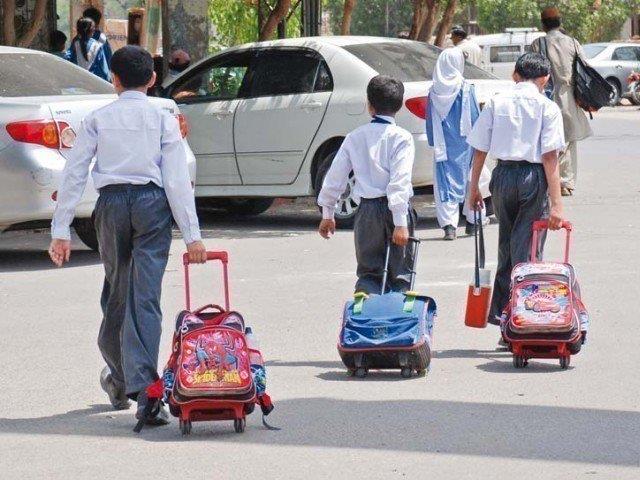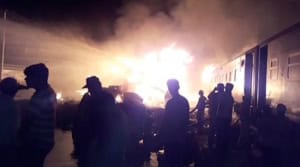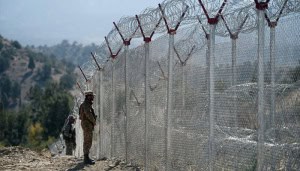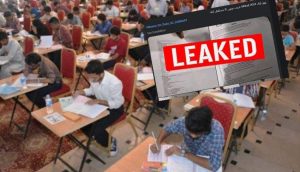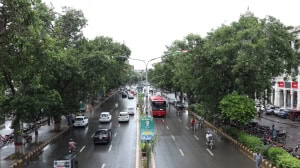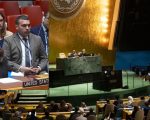By Hawwa Fazal, Midhat Tilawat, Affan Shahid, Sehrish Ahmed and Rija Jawaid…
The horns blared harshly outside the window. As the clock struck 1:30 pm, the residents in the area around a school are stripped of their privacy as the students head home. A stream of lavish cars of the students’ parents, along with a heavy protocol is there to take them home. As a student lazily drags himself while eating an ice-cream across the small yard and as soon as he reaches the gate the guard takes his bag as he slides into his car. The car is now gone but it has woken up the six-month-old child who just slept few moments ago. But who cares! The cars continue to blow horns, the van drivers dump the students into their vans as some students leisurely enjoy the junk food, kulfi/bun kabab/French fries, from the ‘theelay walay’ standing around.
This might be a surprise to a few but is the story of every other residential area in Karachi.
Six schools in the past were established without consideration for minting money out of education. Schools were constructed on a large area of plot assigned to schools in the master plan of the city. Those schools were properly designed by an architect and comprised proper size classrooms, large playgrounds, laboratories and libraries.
Today the education sector has become a business. Numerous schools have erupted among densely populated areas in residential bungalows on narrow streets. These schools neither have playgrounds nor other necessary facilities. Morning and afternoon is a great nuisance for the area residents where 400-500 children are dumped into a small bungalow. It not only creates noise pollution, air pollution, traffic jams but totally destroys the privacy of area residents.
The Exasperated Residents
In an overpopulated city like Karachi, town planning has always been a challenge for which you can blame many factors may it be the increasing population or the corruption in government regulatory bodies. One such problem, which has arisen due to illegal change of land use within the residential areas, where residential bungalows have been illegally converted to schools.
A small glimpse of the situation by Affan Shahid is as under.
https://www.youtube.com/watch?v=p-1zQPfuEtE&feature=youtu.be&fbclid=IwAR0aFIuVVYYNd_0ikbbqlIqkMyWqXnR4YxH8W7GsR1xdoytQGywWoZu755s
“I am new to this area and I wish I had come and visited this place at the school time. Now because of this noise and traffic jams, my family has decided not to come here and I am forced to live alone. Every morning I fight with schools guards on the parking by the parents’ right in front of my car, blocking my way and make me late for the office. The City School has violated my right of movement and I just feel terrible. A week ago some visitor of the school hit my car and ran away and when I approached the school Principal, her response was, we can’t be responsible for that and refused to talk more.” says, Mr. Rohan (owner of D-61) who is a travel agent.
Mrs Rukhsana (owner of D-62), a widow and the mother of two children shares her grievance:
“My house is, you can say, attached to the school. One of my children is settled with his family in Australia and one lives here. From morning to evening I am alone at home. Every time I try to get some sleep, the honking horns never let me take a nap,” she said.
“It destroys you from the inside when you hear the honking horns constantly for more than 2 hours. I guess our educated class does not know about sound pollution. I feel threatened whenever I looked outside the window, random people standing right before my gatehouse staring right towards my window all the time, thanks to the school we neighbours don’t even have the privacy now,” Rukhsana added.
Gulshan Iqbal Block-7 in Karachi has become an educational hub as many schools including Beacon House and The City School are established in residential plots ; there are around 15 schools in this block alone.

Mubashir Kamal, a traffic constable in Gulshan Iqbal Block-7 stated, “Heavy traffic is a usual norm in this area, mainly because of schools. In rush hours, cars are lined up on these roads for hours as the roads are already very congested. Schools administration in this vicinity have made traffic diversions and appointed security guards for controlling traffic but still there is no betterment seen in regard of traffic.”
“The Dawood Public School has already made a car parking area for the students, of the school but still they open their backdoors for a few students who travel by private cars. The lanes are narrow and the traffic remains jammed in our society for hours. My simple question is why open the back door causing an inconvenience for the society residents?” says Nida Aslam a resident of Dawood Colony, PECHS.

The Disturbed Hospital
When towns are built a few facilities are built alongside to facilitate residents such as parks, schools and hospitals. But in town planning, they’re carefully placed at places where they don’t disturb each other. But we found one such hospital which is located adjacent to private schools.
A small glimpse of the situation: By Affan Shahid
https://www.youtube.com/watch?v=dwUAXA9Jx6Q&feature=youtu.be&fbclid=IwAR1m09O86rzaoKGM776kmP24rliUfrgzgQFSMXHmedYpSdLpjNoe-hGyq20
In an interview with Asif and Andrew, both assistants to a cosmetic durgeon serving in Arif Defence Medical Center shared their views on the City School located adjacent to them.
Asif told us that it feels absolutely heartbreaking to be around this kind of school and performing hospital operations here. Many a time he doubts that the City School is a learning institution, seeing the absence of basic civic sense in their student’s parents.
Asif continues by talking about the numerous hurdles faced by the authorities on a daily basis due to the poor traffic control and management of the school.
“Our movement is restricted, our car parking has become hostage to schools vehicles and littering done by their students but most important is the blockade of the road by the school management,” says Asif.
In case of emergency, it is next to impossible to get the patient to the emergency ward on time and the noise pollution has the most disturbing effect on the patients.
Andrew believes the fault lies solely with the DHA authorities who have failed to manage the system properly. DHA, on one hand, claims to be modern, providing quality living style to its customer but lacks the basic management skills by placing such a big school in a densely populated and congested residential area – that too next to a hospital!
Both the assistants were of the same view that their management has approached the DHA complaint centre but no action has ever been taken so far. DHA always guarantees and makes empty promises regarding taking action against the City School but each time DHA authority fails to keep their word and no warning letter has been sent to the school.
Asif has just completed his 2 months in this hospital. He is relatively new and does not recall any case which has gotten worse due to the school traffic.
But Andrew has been working here for 4 years; he says there have been numerous cases that have worsened just because of the massive school traffic. He can recall a patient in a taxi trying to reach their hospital but decided to go to Ziauddin after getting stuck for at least a good 20 minutes in the traffic jam.
Andrew was speechless regarding the school’s night parties. He was embarrassed at the behaviour of teachers, principal, students and parents. He further added, “Pakistan’s future is not looking bright instead it is pitch black to me.”
Asif and Andrew both agreed on the view that because of this school they continue to lose their customers, saying that people do not want to visit them anymore, as they are unable to provide a peaceful environment due to the noise and ruckus created by transporters dropping students and teachers in the City School.

Hefty Fees, Tiny Houses and Zero Facilities
An educational institution is a place where our future generation is taught; they learn and get ready to live in this world. With academics, a huge part that plays part in their development is the physical education for which the first and foremost need is a playground. These grounds are not provided to students in a 50-yard school which take a hefty school fee from the parents.
These schools charge a hefty amount and on an average, their fees go from 10,000-25,000Rs.

“You can see a huge difference in the children today and the way they were before the height, the sportsmanship and the basic civic sense- they lack them all!” says Amber Ali Bai, General Secretary, Shehri organization.
“I have schools around my area, PECHS, the schools are of 100 yards, the children have no space to play the streets are their playground. Those little boys and girls have no way to expand their physical strength. If you look at the people in Karachi most of them are living in buildings or townhouses. You can see the effect if you just look around, our growth has stunted, there is early age diabetes and we’re not producing any sportsmen. Simply put these students have no place to play, to burn their energy and explore their talents. Once a year sports day and a month of practice does not fulfil the need for physical education children need in their developing age,” she observed.
The irritated lady opined that once the school gets over, the school’s responsibility to the students is done but there are vendors standing outside unmonitored and who knows what type of things they can sell to the innocent children who stand outside their vans.
These tiny house schools don’t charge any less to the parents, they cost in thousands yet they fail to provide facilities to ease problems which affect a lot of people including the students and parents.
“The noise pollution caused by these traffic jams daily are a health hazard to the students, they can definitely be a cause to deafness at an early age,” says Afia Salam, an environmentalist.
In residential areas, things are only planned as per the need to have enough resources for the residents who are always in a limited number. The planning for security, infrastructure, sewage and first aid in terms of natural disasters are always done keeping in mind those few people. Then how will these resources reach a huge number of students studying in these places?
“Residential areas are always designed for homes, never for schools. There is never enough space even for the homes, leave alone the schools” Said Imran Nabi from SEPA.
These schools typically have no fire exits and disaster management plans. If for once these parents just think about how they would would manage to get close to their child when thousands of parents gathered together in a small space, we just might realize the bigger issue.
What does the law say?
According to the law there are certain procedures to be followed before opening a school.
At first, private schools were not permitted to be built in any residential areas because they are a commercial entity doing a business.
Regulation 2002 had an amendment in 2011, according to which an educational plot can be built within a residential area keeping in place the following conditions:
- The school should be on a road which is 60 feet wide
- Schools have to obtain a NOC from the residents nearby
- Covert the plot lawfully into an amenity plot with an MPGO. Even if the plot is on rent then the owner has to convert it.
Schools which have not followed the following procedure are all illegal and subject to being sealed easily by KBC who are authorized to do criminal proceedings against them under section 19 of Sindh Building Ordinance as per advocate Rizwana Ismail.
There has been a case in which schools have been closed due to the timely cases and objections done by the residents but there is also another side in which due to the protest of students and parents the schools have been unsealed.
On August 9, 2018, Sindh Building Control Authority (SBCA) sealed a private school in Gulshan Iqbal area of Karachi. According to reports, the school was built in the residential area and against the guidelines of SBCA. Later, they unsealed it upon the protest of students and children.
According to KDA, thousands of square yards of 35,000 amenity plots had been taken over through ‘china cutting’ and land worth over Rs1 trillion was illegally occupied.
Now it is our duty as residents to look after our society and protect it from what’s illegal.
Authority’s Responsibility
Now we know that they’re illegal and present in every single residential area then, what’s stopping the action?
Mahtab Akbar Rashdi, a member of PMLN, also a bureaucrat who handled the department of education says Karachi for 40 years has been ruled by MQM and PPP who more or less have allowed the corruption to continue unabated.
The politician says that the officers have turned a blind eye to the problems and let things run in a haphazard manner.
“You can see the result. Karachi is a mess in every way,” he adds.
To a query by a fellow reporter whether the government was aware of these residential schools, Mahtab Rashdi responded in the affirmative.
“These schools were established in houses; the government was able to see the resident’s sufferings but the metropolitan government and the city government. Nobody tried to stop it they were least bothered about it, also the element of corruption took a part in too and today you can see the negative impacts on Karachi in its haphazard growth,” he observes.
“The government was well aware of where these schools are opening because these schools have to obtain a certificate before they are operational and the locality of these schools is checked prior to their approval” said Ms. Mehtab.
There is a dire need of a trend to ask questions; the tax we paid needs to be accounted by us.
The state of merit needs to be questioned because we have to pull this country out of the trend of corruption, nepotism and influence.
“You see it is the authority’s fault the people had been so unsatisfied with the level of education in government schools that they started sending the children to private schools. That is what allowed this business of education to flourish and the schools started in these residential areas, ” says Mrs. Rashdi.
The politician opines that the education department comes under the head of government and our government schools can only be made proper if the teachers are hired on merit and we can change the government school curriculum to a more updated one according to the need of today’s education sector.
We also tried contacting the Sindh Education Department and Karachi Development Authority from both places we were unable to get any response.
The Flipside
The other side says that residents also want these schools as they don’t want to send children too far, fearing security issues.

Fauzia Shabbir, a resident of Gulshan-Iqbal Block-6 stated, “Heavy traffic has now become the part of this area. We have got used to it. My granddaughters go to the school nearby and it is actually very convenient for us to drop off or pick them up from school.”
“It’s important to build schools in residential areas to facilitate the people living in that vicinity; also due to very few and sub-standard government schools, private schools in residential areas have become a need,” says Sana Fatima, Head of Beacon School.
But is this a selfish reason? Quite possibly.
Other countries have schools in their residential areas but they are government owned schools. Pakistan has schools too, government schools which occupy 1000 sq. yards minimum in every area.
The fault lays both ways. It is the government who allows these illegal schools and the mismanagement of government schools. On the other side the residents also fail to complain to the authorities, too scared to take action and lastly those who support these business schools just in the name of:
“English medium schools with British examinations”.
